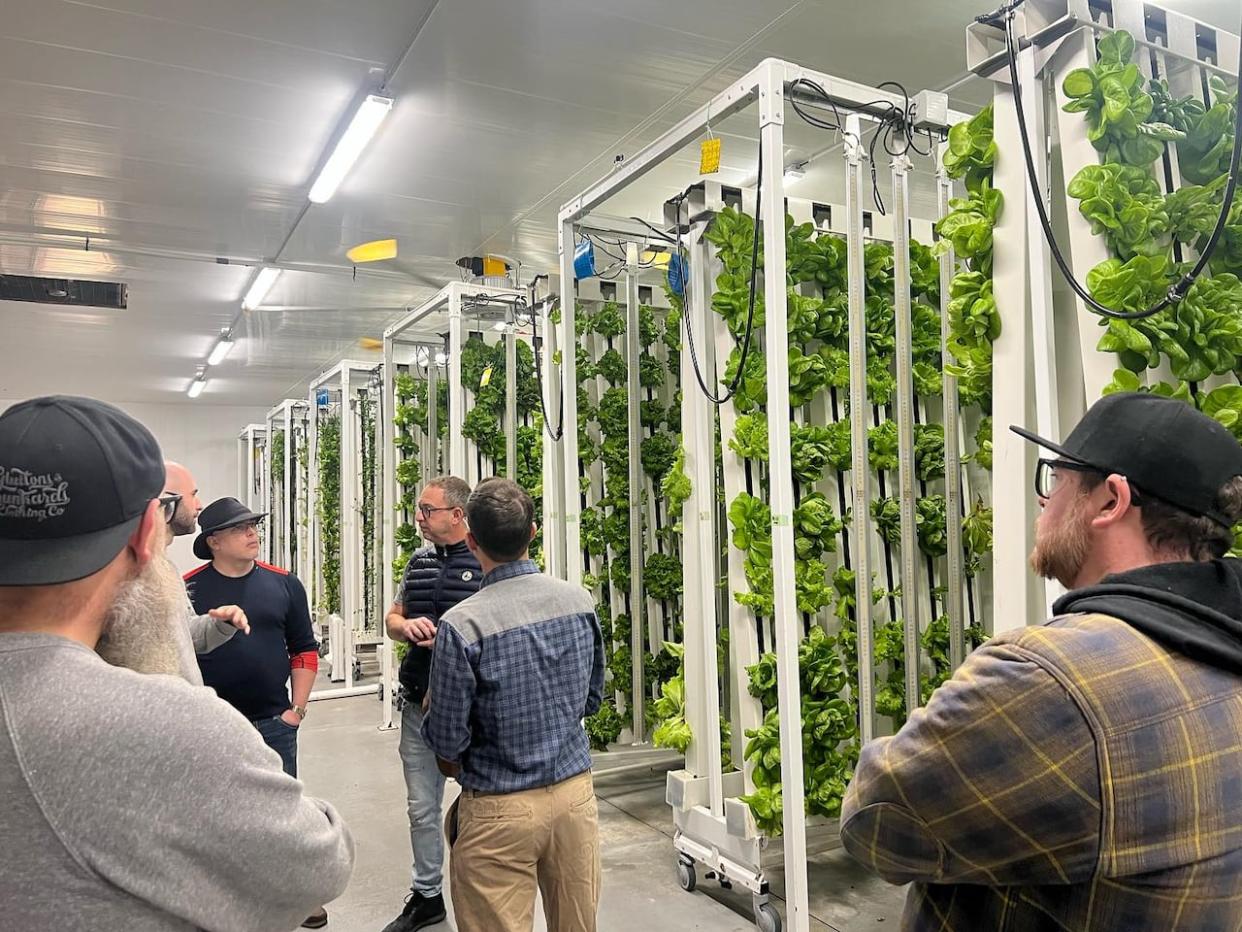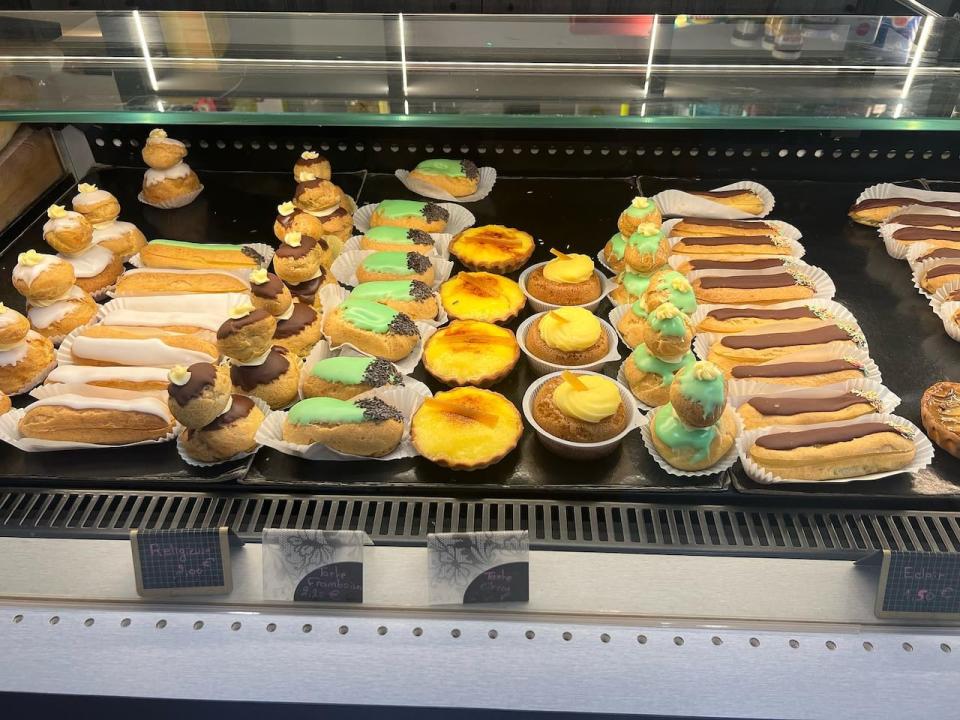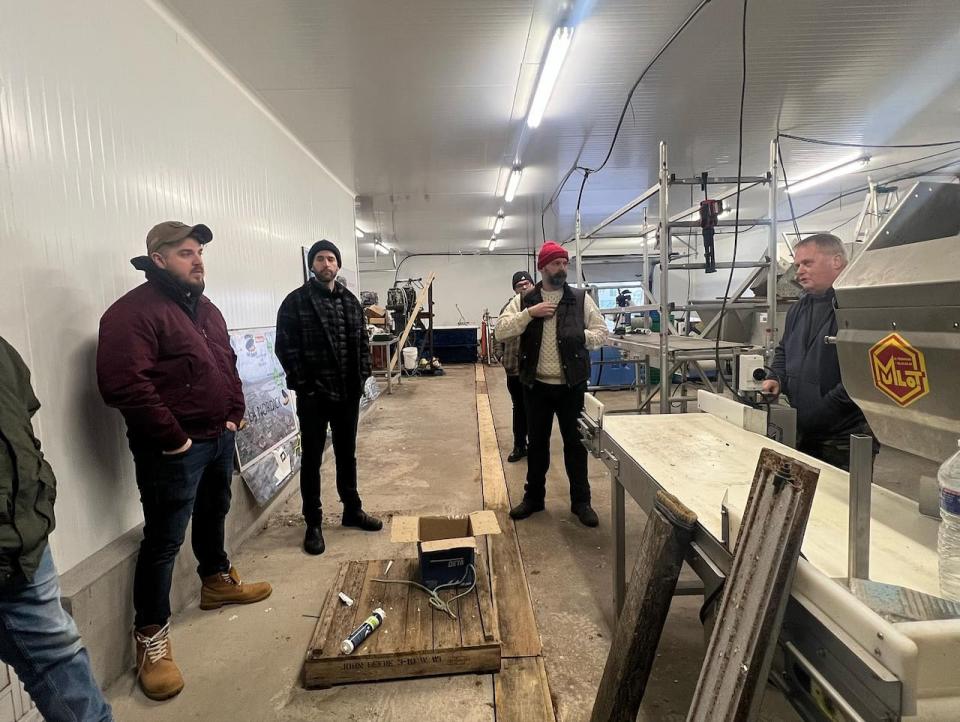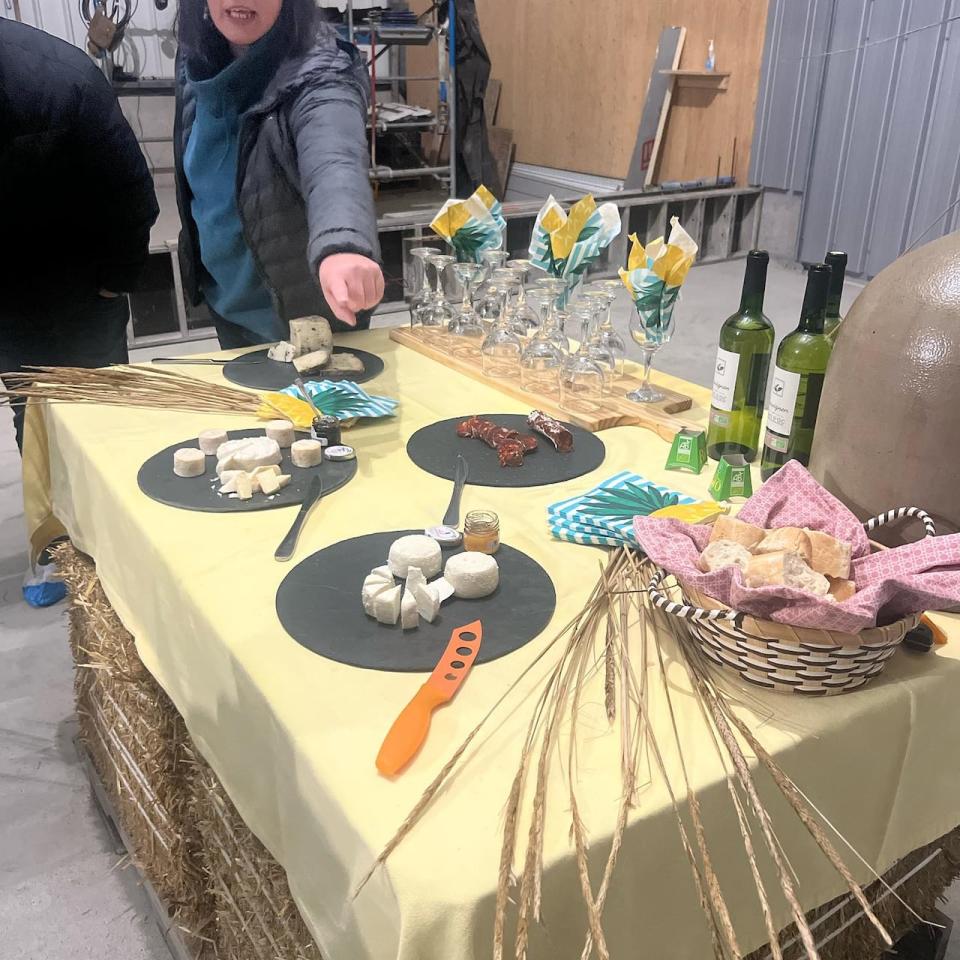N.L. hospitality and culinary experts tour through St-Pierre-Miquelon in search of partnership, learning


The Newfoundland delegation toured this hydroponic farm in St-Pierre-Miquelon. (Fork Restaurant/Facebook)
About a dozen people from Newfoundland and Labrador's hospitality and culinary industries spent last week on the French islands of St-Pierre-Miquelon — learning how they eat, drink, and offer hospitality in France's only piece of land in North America.
The contingent was organized through the tourism group Legendary Coasts of Eastern Newfoundland.
Legendary Coasts executive director Chris Sheppard said he's hoping to create a tourism partnership with the small French islands off of Newfoundland's south coast.
"Culinary is such a big part of what we do here in eastern Newfoundland and of course in France," Sheppard told CBC News. "It's a huge part of their culture and their tourism offering. So let's bring a group of chefs, farmers and brewers to see if we can create some of those packages."
Among those at the week-long summit included representatives from Chinched, the Old Dublin Bakery, Fork Restaurant, the Grounds Cafe and more.
"The Newfoundland delegation are going to learn the difference between the European way of doing things and the North American way of doing things," Sheppard said.
"Similar to rural Newfoundland, they're operating in an area where there's a low population and they're highly dependent on tourists that come there in the summer."

The bakeries of St-Pierre-Miquelon were just some of many stops on the Newfoundland delegation's tour. (Fork Restaurant/Facebook)
Sheppard said despite the small geographic distance between the province and the French archipelago, there's a huge cultural difference.
"A lot of people think it is just like Newfoundland and it's not," Sheppard said. "You are in France. Cobblestone streets, fantastic restaurants, bakeries of course, wine, shopping … the shops are selling ingredients that we don't get here in Newfoundland because they're imported from mainland France."
As well, Sheppard said their hydroponic food production is totally different from Newfoundland.
"That's growing fresh greens year round, which has been very successful for St-Pierre-Miquelon," Sheppard said.
"There's a huge opportunity for us in eastern Newfoundland to learn what they're doing and help the farmers develop new product. They told me last year they sold five tons of lettuce. I mean, there's only 6,600 people on the island. So it's significant when everybody in the middle of the winter can get an amazing fresh taste like it just came out of the garden."

The Newfoundland delegation also toured this shellfish processing facility. (Fork Restaurant/Facebook)
One of the farmers who went on the trip, Adam Furlong of Outport Acres on the Bonavista Peninsula, had a similar reaction.
"They seem to have a lot of local support for their own businesses and their own food producers," Furlong said. "They are really in tune with how they need to produce their own food and everyone on the islands is focused on getting that food from local producers if it's available."
Furlong said he wishes Newfoundland and Labrador's relationship to food was similar.
"I'd like to see a lot more support from public consumers to have more of a willingness to want to purchase things grown locally instead of from the large scale corporate chains," he said.
"I would like to try to produce more of a variety of crops, similar to the farms we visited there."
But for Furlong the biggest takeaway was the quality of the food being severed in the French restaurants.

The Newfoundland delegation were treated to several demonstrations, such as this one of French charcuterie products. (Fork Restaurant/Facebook)
"The one thing that sticks out in my mind was an appetizer they made us, a seaweed tartare, that was absolutely phenomenal," he said.
As for Sheppard, he's hopeful that people from the hospitality and culinary industries in St-Pierre-Miquelon will now take a similar visit to St. John's. He's hopeful for a tourism partnership that would strengthen the pull of both areas.
"We can create a tourism product that will combine the two regions," he said.
"When people come to eastern Newfoundland and they eat at a restaurant here, that restaurant can say, 'Here's the package we've developed, you eat here and now tomorrow night you're going to eat at my colleague's restaurant in St-Pierre.'"
Listen to the full interview with CBC Radio's Weekend AM:
Download our free CBC News app to sign up for push alerts for CBC Newfoundland and Labrador. Click here to visit our landing page.


